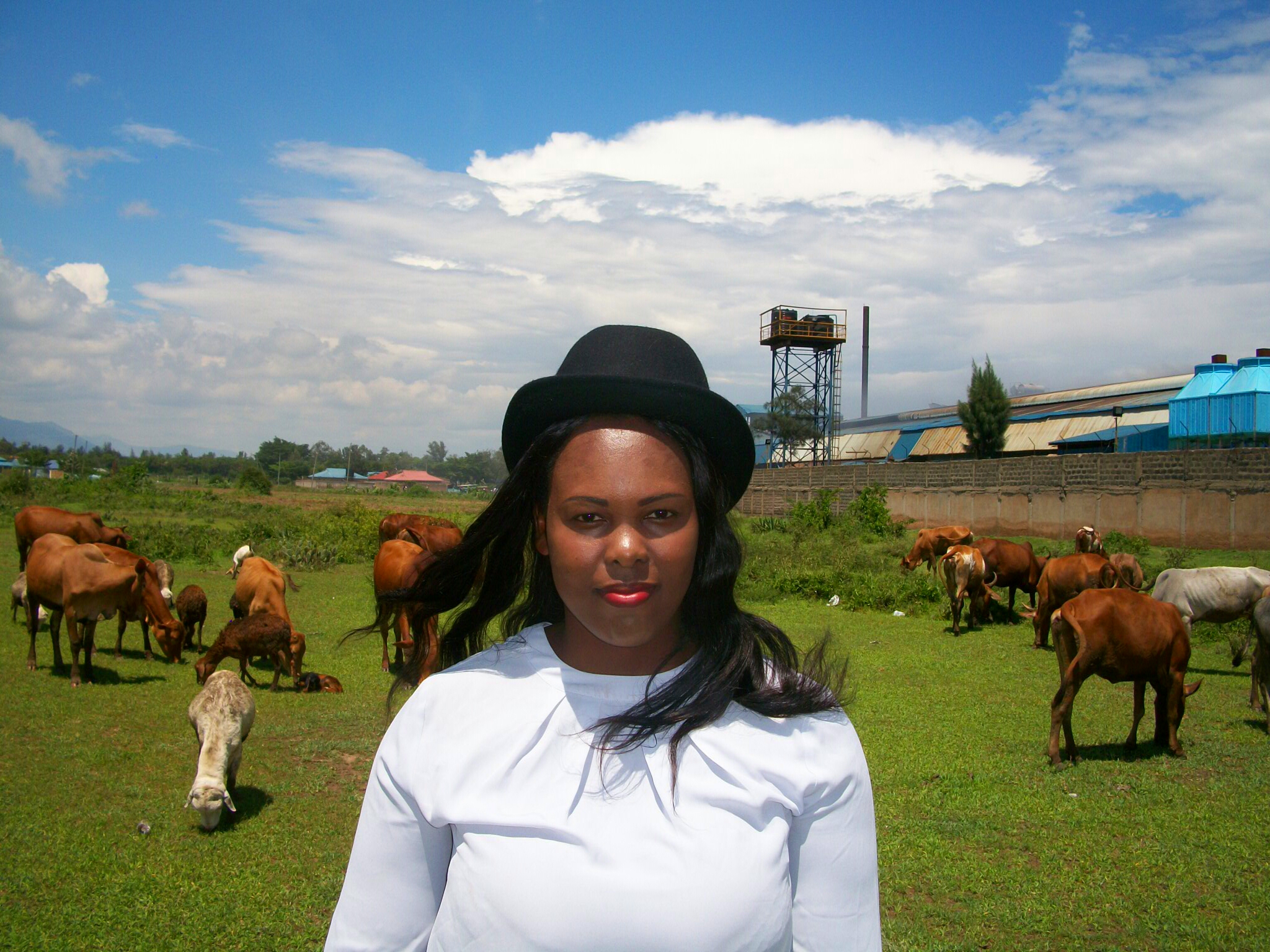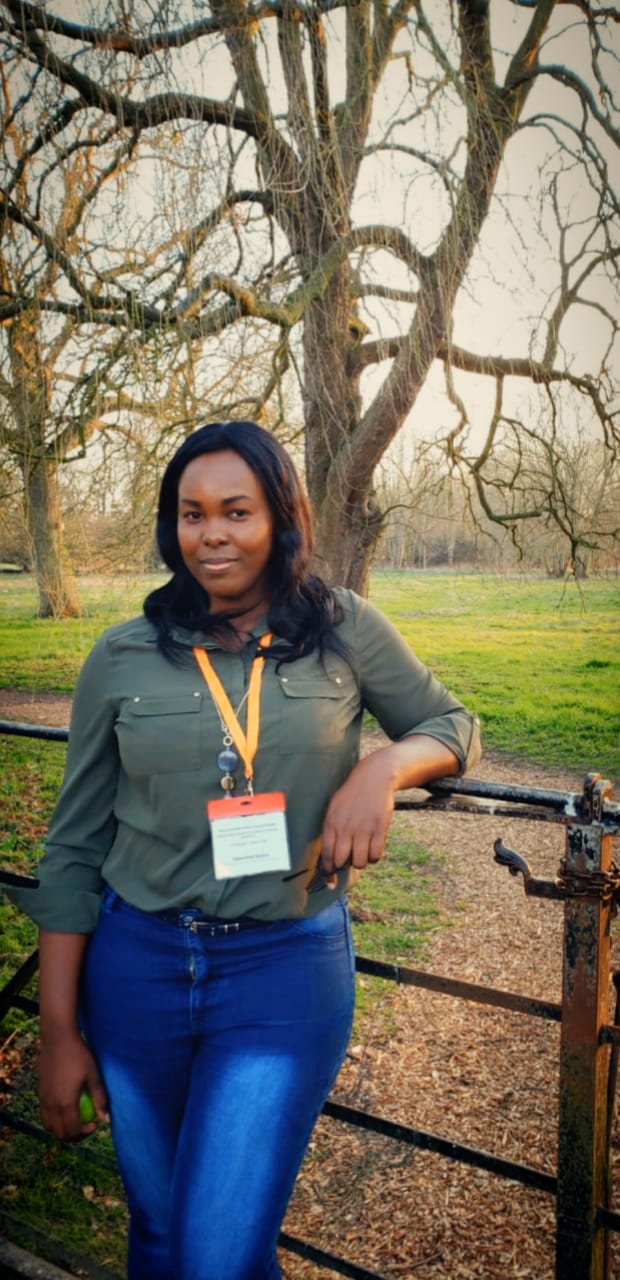
Valentina Ndolo talks about her research mapping potential anthrax hot spots.
When anthrax is reported, restrictions have to be brought in...There is a big stigma around it and it can lead to boycotts of farms and much underreporting.
Valentina Ndolo
Over 60% of infectious diseases in the world are now zoonotic diseases – diseases that are passed from animals to humans. One of these is anthrax which is a huge problem for farmers in Africa and is highly infectious. Anthrax attacks mainly grazing animals and can kill hundreds of livestock within a very short time span. “When it is reported, restrictions have to be brought in. Farmers cannot sell their products,” says Valentina Ndolo, whose PhD is investigating how to prevent its spread. “There is a big stigma around it and it can lead to boycotts of farms and much underreporting. If the symptoms look like anthrax, many people bury the animal and keep quiet or slaughter it and sell the meat,” she adds.
Her PhD is modelling the areas which have conditions which are conducive for the bacteria that causes anthrax so outbreaks can be better predicted and governments can target preventive campaigns better. In Uganda, Valentina has been working with the Ministry of Agriculture, the Centres for Disease Control and the Ministry of Health. She is now doing the same in Kenya, but in more detail to create a time series of hot spot maps dating back to 1990. “That way we can see patterns emerging and understand how hot spots move over time,” says Valentina, for instance, the links between climate change and disease patterns. This could help governments to predict the impact of climate change on anthrax infection. There are good records available from 2010, but Valentina has also unearthed older records that no-one has looked at yet.
There are also implications for human health. The bacteria that causes anthrax can live in the soil for a long time. As population growth leads to people moving deeper into wilderness areas, construction work can disrupt old carcasses which can trigger outbreaks and lead to human exposure. Mostly anthrax is passed onto humans through touching infected meat. That can result in fluid-filled ulcers and black scars on the skin. It can also be passed on through eating infected food, causing severe gastrointestinal illness, but the most dangerous form of anthrax infection is through inhalation of anthrax spores, for instance, by people working in the leather or wool industries. This can cause severe respiratory illness and, ultimately, death. Even with aggressive treatment, 45% of patients with inhalation anthrax still die. Injection anthrax has also been recently added as a form of anthrax infection affecting heroin-injecting drug users.
Early years
Valentina [2018] was born in the city of Kisumu in western Kenya on the banks of Lake Victoria. She was an avid reader from a young age and she and her six siblings were encouraged to read by their parents. Valentina says that she “took it up a notch” and that her family used to make affectionate fun of her for always having her nose stuck in a book. Her father set up a small library at home and Valentina had read most of the books there by the age of 10, including a book on child psychology which meant she was able to keep up with her parents. Both were high school teachers, now retired. Her mother taught agriculture and biology; her father taught geography and history.
Over the course of her school life, Valentina developed a passion for science, influenced mostly by her mother and her chemistry and physics teachers. The physics teacher transformed the subject when she joined, says Valentina, bringing it to life and making it more about practice than theory.
At high school, Valentina wanted to be a doctor, but she missed out on a scholarship so took the closest subject to medicine, which was biochemistry, at the University of Nairobi. She had never been out of Kisumu before heading there to begin her three-year course. The University of Nairobi, currently the top university in Kenya, fostered her love for research. Although her course was mainly practice-based with a literature review-based research element, Valentina says the university’s lab technicians gave students extra time to finish their experiments and even once organised an experiment just for her so she could extend her learning.
At university, Valentina was involved in athletics and wanted to train to sprint at the Olympics. However, a sprained leg put a halt to that plan. She also mentored younger students in her last year.
Infectious diseases
 In her final year she applied for an internship at the KEMRI|Wellcome Trust Research Programme and worked on a project led by Professor Faith Osier, an award-winning immunologist and paediatrician, on the impact of decreasing exposure to malaria on children’s immunity to the disease. There were concerns that not being exposed to malaria in the early years might make children more likely to have it when they are older. It was the first big research project Valentina had worked on and she really enjoyed it. The Trust also ran seminars from visiting researchers and experts in infectious diseases. They inspired Valentina not only to become more interested in infectious disease, but also to consider studying abroad.
In her final year she applied for an internship at the KEMRI|Wellcome Trust Research Programme and worked on a project led by Professor Faith Osier, an award-winning immunologist and paediatrician, on the impact of decreasing exposure to malaria on children’s immunity to the disease. There were concerns that not being exposed to malaria in the early years might make children more likely to have it when they are older. It was the first big research project Valentina had worked on and she really enjoyed it. The Trust also ran seminars from visiting researchers and experts in infectious diseases. They inspired Valentina not only to become more interested in infectious disease, but also to consider studying abroad.
She applied to Oxford University to do a one-year master’s in international health and tropical medicine, for which she received a Commonwealth Scholarship. The course was interdisciplinary, ranging from biostatistics and epidemiology to laboratory science and she was surrounded by students from different countries. Whilst at Oxford, Valentina did a brief internship project at the Jenner Institute, studying malaria immunity in adults. “We were studying what makes some adults immune to malaria and how this might be used to develop vaccines. I cloned malaria antibodies from the B-cells of a naturally immune adult. One of them showed very promising results,” she says.
The work on the antibodies won her a distinction on her dissertation project. After finishing her master’s degree in 2016, Valentina returned home to think about what she wanted to do for her PhD. She knew she wanted to continue studying infectious diseases, but wanted to acquire more skills by working on an interdisciplinary project that comprised computer programming, mathematics and epidemiology. After much thought, she decided that she wanted to study anthrax due to increasing scientific interest in zoonotic diseases and the rising frequency and intensity of anthrax outbreaks.
Another key factor for Valentina was that she wanted to do a PhD which was not confined to the laboratory and would help her to develop the additional computer-based skills and fieldwork experience that she needed. She currently works under the supervision of Professor James Wood, an Alborada Professor of Equine and Farm Animal Science and the head of the Department of Veterinary Medicine. Her PhD is field- and epidemiology-based and involves not just mapping hot spots for the disease, but also using powerful algorithms to help governments to forecast outbreaks.
When she chose to do her PhD in Veterinary Science, she discovered that her late grandfather had been a vet. “I knew he had several farms. I heard stories about his passion for farming, but it’s only when I joined the vet school that my mum told me he was actually a vet. My grandmother was a farmer. My mum taught agriculture and keeps lots of animals like donkeys, cows, chickens and cats. It seemed that there had always been a love of agriculture and animals in the family,” says Valentina.
African women in STEM
She started at Cambridge in 2018. The year before was not just spent deciding on and applying for her PhD, however. Valentina had observed at Oxford that not only were there very few women researchers in her area, but there were even fewer African women. “I felt I needed to help other girls in Africa to get onto postgraduate courses and promote more women leaders in science,” she says.
So, she set up the STEMing Africa Initiative to mentor female undergraduates and help them to apply for scholarships. Between 2017 and 2019 the organisation helped five girls get scholarships and several others apply for postgraduate studies. “I want to encourage other girls to go for it,” says Valentina. “They can relate more to people who have been through it, who have been turned down and have kept going.” At Cambridge she has been working with the African Society of Cambridge University alongside other PhD and masters students to mentor prospective students seeking to apply to Cambridge and support them through the process. Valentina continued her work during the first year of her PhD studies and has delegated to other mentors now so that she can focus on finishing her studies.
Her first year was due to be spent doing fieldwork, but in her second year her fieldwork surveys were interrupted by Covid which restricted her mobility. It is only now that she has been able to take it up again. So far, she has managed to get a good amount of data from the Kenya Wildlife Service and the Directorate of Veterinary Services in Kenya which she intends to analyse and write up. She is also completing her final survey in Uganda.
Despite the Covid-related problems she has faced, Valentina hopes to finish her PhD with only a minimal delay. After she finishes, she says she would like to do similar work on other zoonotic diseases, particularly those that are most neglected but with significant global health burden.












